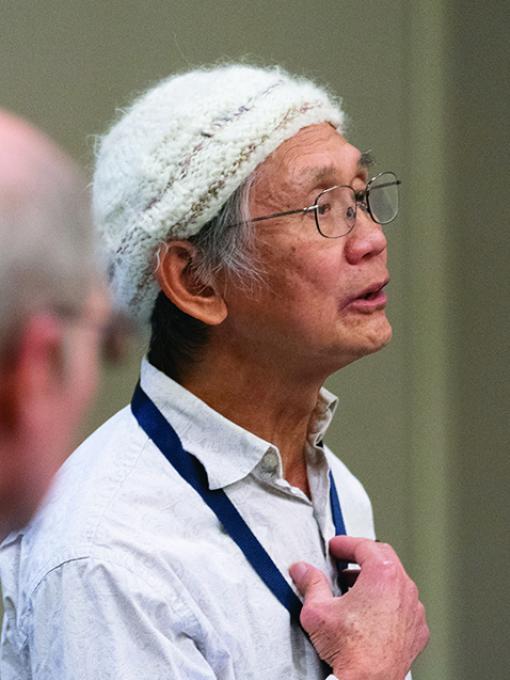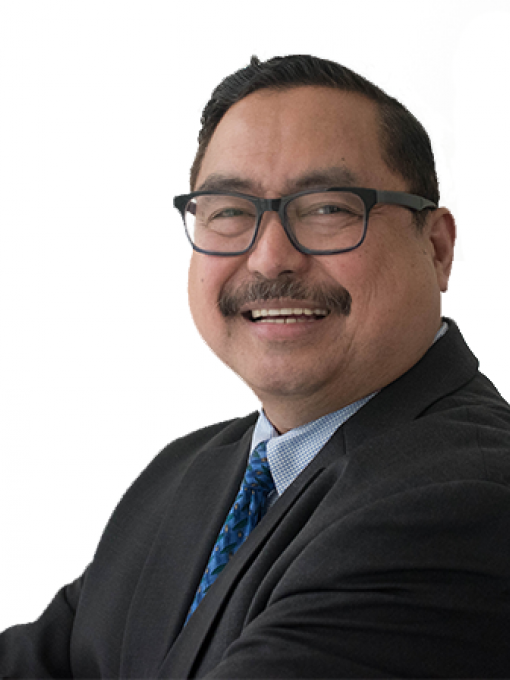When Dat Duthinh arrived as a student at Princeton University in 1969, he sensed that the atmosphere was not normal. It was peaceful. “I had never lived in peace before,” said Dat. He only knew war.
He had already been a refugee in 1954 when his family evacuated from Hanoi to Saigon during the First Indochina War (1946–1954)—when Vietnam won its independence from France. But the war still pursued them when the United States got involved in defending the government of South Vietnam against the communist North.
Growing up in Saigon, now Ho Chi Minh City, the streets were filled with the rumblings of tanks in the streets and planes bombing the countryside. Music from bars catering to U.S. soldiers spilled into his neighborhood.
At that time, participating in anti-war protests was extremely dangerous. “There were only two types of Vietnamese: those who support the government and the communists,” Dat said. “If you don’t support the government, you are a communist and the only good communist is a dead communist.”
When he landed in the United States, Dat was pro-Vietnam War, largely because of government propaganda. But the more he researched to defend his position, he realized how wrong he was.
“What turned me around was how the French colonialists after World War II had turned U.S. opinion around to support French colonial reconquest. They did that by turning it into a fight of the free world against communism,” Dat said.
“To see that a lot of Americans were against the war and marching against it was very heartening.”
Soon he joined the anti-Vietnam War protests, not only at Princeton but also in Washington, D.C. “I felt free. If I had done anything like that in Vietnam, I would have been imprisoned. To see that a lot of Americans were against the war and marching against it was very heartening,” he said.
The anti-Vietnam War movement proved very effective. This year marks the 50th anniversary of the end of the Vietnam War.
When asked what major lesson from the Vietnam War would apply to today’s wars, like the war in Ukraine, he stressed the need for all parties involved in the conflict to be at the same table as they negotiate peace.
In 1954—before the 1973 Paris Accord that ended the Second Vietnam War—the Geneva Accord was signed, which ended the war against the French colonizers. “The Vietnamese were doing all the fighting and all the dying, but their role in the peace negotiations was not assured,” Dat said.
By the time they were invited, the Vietnamese controlled three-fourths of the country, but in the end, they had to settle for much less than what they gained on the battlefield. It caused the second Vietnam War which lasted for another 20 years.
“We should always work towards peace but I’m not in favor of peace at any price. I’m not in favor of telling Ukrainians to turn the other cheek and lay down your arms, or the U.S. to please stop supplying weapons. That would cause the subjugation of the Ukrainians within a week,” Dat said. “If there is no justice, there will be no peace.”
Although he was raised as a Buddhist, Dat was impressed by the Quakers’ unwavering support for peace in Vietnam. In 1965, he learned of the self-immolation of two Quaker peace activists, much like the Buddhist monks who set themselves on fire to protest the Vietnam War—Alice Herz in Dearborn, MI, and Norman Morrison in front of the Pentagon.
While in Vietnam, he learned of the covert voyage of the Phoenix, a ship that helped war victims in North Vietnam. It was sponsored by the American Field Service Committee and the Quaker Action Group (QAG).
Although he eventually married a Quaker, Anne Buttenheim, Dat did not realize that he was a Quaker until he was offered his first engineering job—building nuclear silos and structures that could withstand a direct hit by a nuclear bomb. He turned down the job.
“As I reflected on that offer, I guess I became a Quaker then,” Dat said.
Today, he is a member of the Frederick Meeting in Frederick, MD. He is also very active with Peace Action, Prevent Nuclear War, and FCNL.
Although he arrived in the United States as a penniless student, Dat worked hard, eventually earning a doctorate degree in structural engineering from Cornell University.
He recently retired after having worked for 26 years as a scientist at the National Institute of Standards and Technology.

